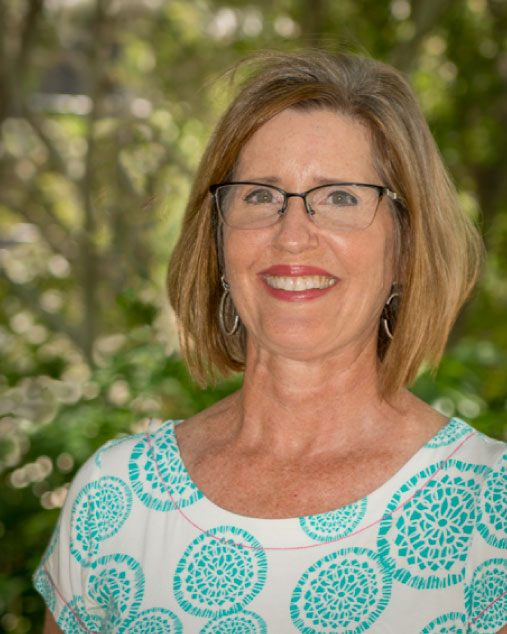We are meaning-making creatures

Julie McGue
Author
After I wrote last week’s blog, I received my friend Michelle’s weekly newsletter. Michelle Marlahan is a writer, respected yogi, and a thoughtful person. Because Michelle’s electronic messages are always short, well-written and insightful, I never hesitate to click ‘open.’ In the post, my friend puzzled the meaning of a recent bout of personal health issues. She noted that as “humans we are ‘meaning-making’ creatures,” and that we “look for connections, signs and derive meaning from their existence.”
Michelle went on to say that she believes we decide the meaning. I concur. But I also think that certain life experiences guide us into taking the proverbially fork in the road. These pivotal moments and our subsequent choices are what impacts the course of our existence. What meaning we ultimately draw from the pivotal moments may not be immediately visible. It may take years before we can extract wisdom from our experiences and decisions.
Permit me to share two anecdotes in which a pivotal moment led me to make a choice about which I am now able to reflect upon and draw meaning.
At sixteen, while immersed in a high school midterm exam, I was summoned to the principal’s office. There, I met up with my twin sister and younger brother. Without any explanation, the school secretary sent us home. In the middle of the school day. In the middle of mid-term exams. No reason given. For the twenty-minute ride home, the three of us barely spoke. As I gazed out the car window, I suspected something must be very wrong at home.
Suffering from a chest cold, my youngest sister, aged 4, had stopped breathing. The ER docs were unable to save her. In the years that followed my sister’s sudden death, my family became pretty dysfunctional. My father immersed himself in work. Instead of grief therapy, Mom sipped wine in the afternoon with the neighbor ladies. My two grammar school siblings garnered little attention from my parents and were not held accountable to long-established family rules. My twin sister and I refused to go to Church, retreated into our schoolwork, and focused on heading off to college.
Ascribing meaning to an innocent child’s death and the subsequent disruption to our family life is not something I have been successful in determining. But this I know: my sister’s death influenced my college major. Instead of the business coursework my father had been pushing, I planned to study psychology. I yearned to understand grief and loss, relationships and personality, and nature vs. nurture (this had to do with my adoption). Psychology as a college major set me up with the basic knowledge and skills that I would need decades later when I launched the adoption search that I detail in my forthcoming memoir, Twice a Daughter: A Search for Identity, Family, and Belonging.
Like my friend Michelle, I have experienced troubling, personal health issues, the meaning of which eluded me at the time. In 2008, when I was forty-eight, married, and raising four busy kids, I flunked a routine mammogram and was sent for a breast biopsy. The need for family medical history became very real. I approached my adoptive parents for my adoption paperwork and began researching my personal history. As I discuss in my memoir, this choice did not go over well with my adoptive mom. Thanks to my psychology background, I was tuned-in on how to frame difficult conversations, and I was sensitive to Mom’s touchpoints. I appealed to her sensibilities as a mother. I explained that I desired my birth family’s health history, not simply for myself, but for my four children.
As I launched the search for my birth relatives, I picked up an old habit: journaling. I also enrolled in a creative writing program. Through my coursework, I put on paper how I felt about being adopted, what it was like to grow up as a twin and an adoptee, and I outlined the pivotal moments in my adoption search saga. I wrote honestly about how both of my families– birth and adoptive–had challenged my sense of identity, family and belonging. And I wrote about my adoptive mother’s resistance, and the numerous roadblocks I faced in locating and reuniting with birth relatives.
Years evaporated before I was able to discern meaning concerning the events and experiences that started in 2008 with that suspicious mammogram. The benign breast biopsy led to my pursuing the longed-for truths from my forbidden past, and that midlife adoption probe re-kindled my love of writing. As a result of the biopsy and subsequent adoption search, I became a serious author. I set up an author platform, launched a blog, and found a publisher for Twice a Daughter.
When I finished the final edits of my memoir, our nation was in the early stages of the pandemic. As we all fought to create meaning in our changed world, I realized something profoundly important. In the course of writing my memoir, I had grown to accept my adoption and I had forgiven it for all that it had taken from me. Somehow a breast biopsy led to finding my birth family, which inspired me to pick up writing, and that hobby morphed into personal growth. That’s a lot of meaning from a series of non-linear pivotal moments.
When we are immersed in personal crises, it’s almost impossible to derive immediate meaning. It is over time and through great reflection that impactful realizations come to us. Only then can we decide meaning.
“When we are immersed in personal crises, it’s almost impossible to derive immediate meaning.“
Don’t miss a blog post!
Receive my blog posts directly to your inbox.


